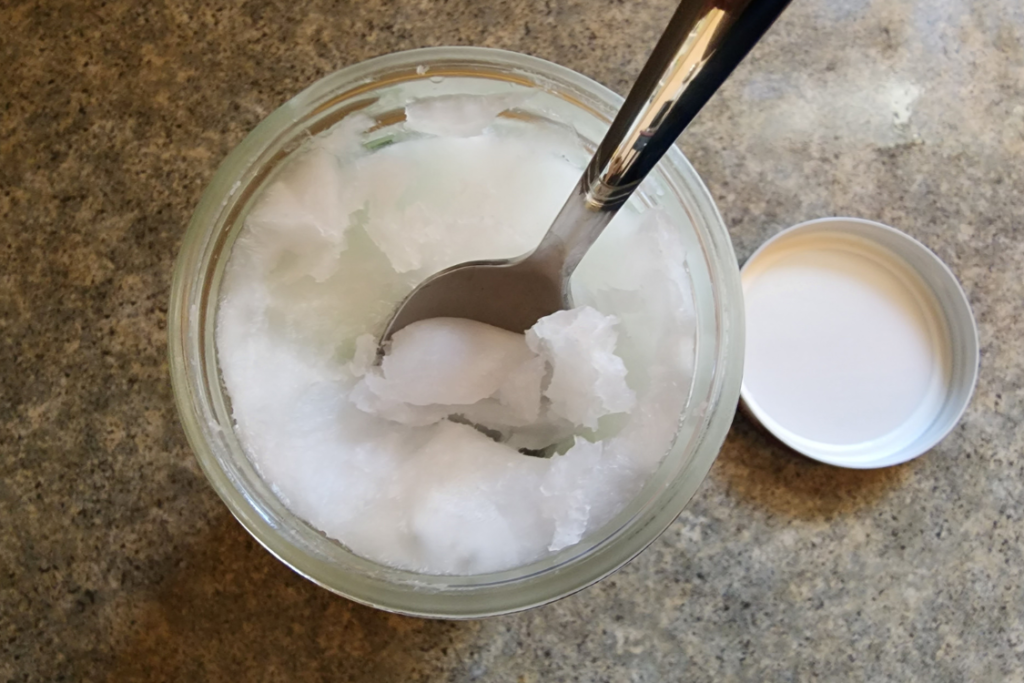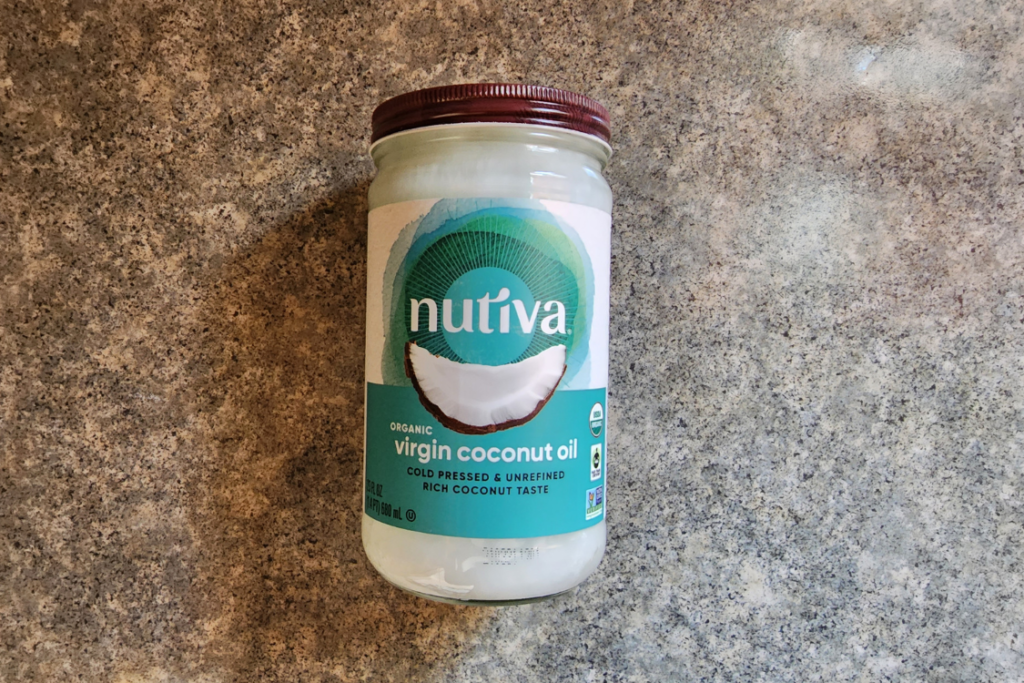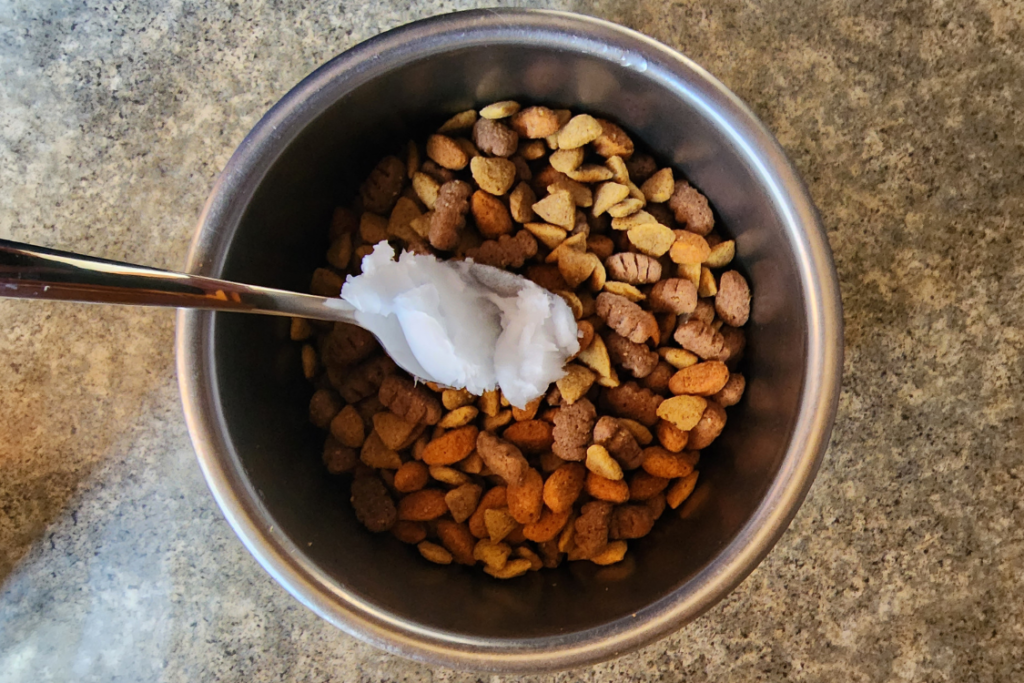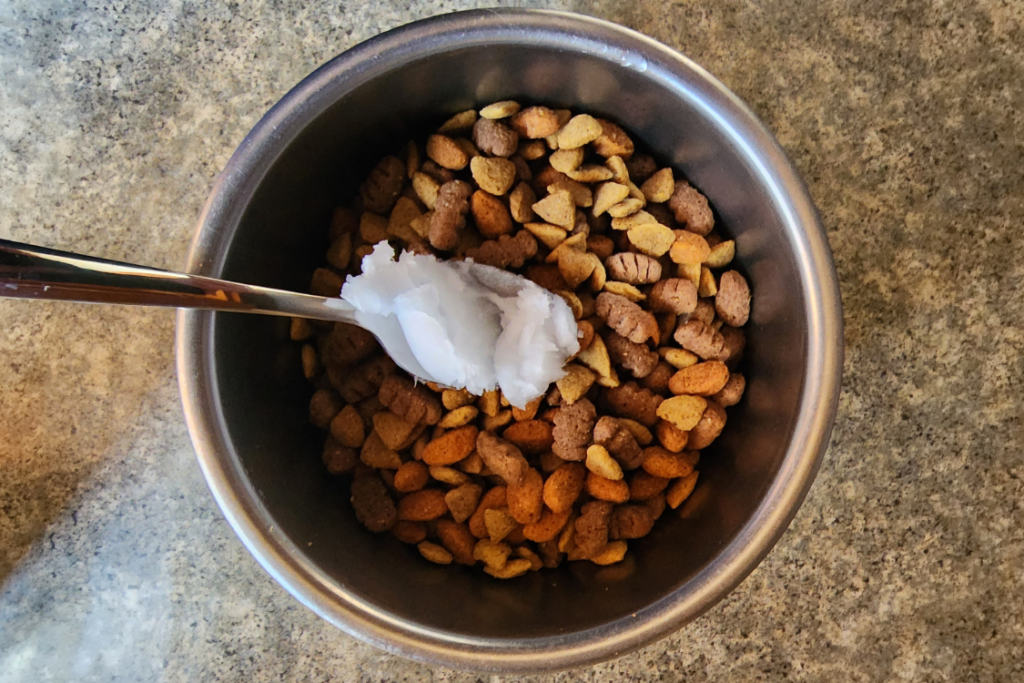Coconut Oil for Dogs: A Guide to the Benefits and Usage
Coconut oil has been growing in popularity as a health supplement for both humans and pets. While its benefits for humans are widely known, its benefits for dogs have been gaining attention in recent years. Coconut oil is a natural and safe way to support your dog’s health, and it can be used in a variety of ways.\
Before incorporating coconut oil into your dog’s diet, it’s important to talk to your veterinarian
Understanding the Benefits of Coconut Oil for Dogs
Coconut oil is a great source of healthy fats that are beneficial for your dog’s overall health. The oil contains medium-chain triglycerides (MCTs), which are easily absorbed and metabolized by the body. MCTs are known to improve brain function, support the immune system, and provide energy.

Coconut oil has also been shown to have antibacterial, antiviral, and antifungal properties. This makes it an excellent natural remedy for fighting off infections and improving your dog’s overall health.
In addition to its nutritional benefits, coconut oil is also great for your dog’s skin and coat. The oil contains vitamin E, which can help improve the overall condition of your dog’s skin and coat. It can also help soothe dry, itchy skin and reduce dandruff.
How to Choose the Right Coconut Oil for Your Dog
When choosing a coconut oil for your dog, it’s important to select a high-quality, organic, and unrefined product. Look for coconut oil that is cold-pressed, as this means that the oil is extracted without the use of chemicals or high heat. Also, be sure to check the label for any additives or preservatives, as these can be harmful to your dog’s health.
I use coconut oil for oil pulling every morning. I only use cold pressed organic coconut oil and the same for my dogs.

Incorporating Coconut Oil Into Your Dog’s Diet
If you’re interested in adding coconut oil to your dog’s diet, it’s important to start slowly and gradually increase the amount you give them. A good rule of thumb is to start with ¼ teaspoon per 10 pounds of body weight per day and gradually work your way up to 1 teaspoon per 10 pounds of body weight per day.
You can mix coconut oil into your dog’s food or give it to them as a treat. Some dogs may be hesitant to try coconut oil at first, so you may need to try a few different methods to see what works best for your furry friend.

Using Coconut Oil for Skin and Coat Health
Coconut oil can be applied topically to your dog’s skin and coat to help improve their overall condition. To use coconut oil topically, simply massage a small amount of the oil into your dog’s skin and coat. Be sure to avoid getting the oil in your dog’s eyes, nose, or mouth.
Coconut oil can help soothe dry, itchy skin and reduce dandruff. It can also help improve the overall condition of your dog’s coat, making it shinier and healthier looking. If your dog has a skin condition, such as eczema or dermatitis, coconut oil may help alleviate some of the symptoms.
Potential Digestive Benefits of Coconut Oil for Dogs
Coconut oil may also have digestive benefits for dogs. The oil contains MCTs, which are easily absorbed and metabolized by the body. This means that the oil can provide a quick source of energy and may help improve your dog’s digestion.
Coconut oil may also help improve your dog’s gut health. The lauric acid in coconut oil has been shown to have antibacterial, antiviral, and antifungal properties, which can help fight off harmful bacteria and promote the growth of beneficial bacteria in the gut.

In addition to its digestive benefits, coconut oil may also help with weight loss in dogs. The oil can help increase satiety and reduce appetite, which may help your dog eat less and lose weight over time.
Overall, coconut oil is a safe and natural way to support your dog’s health. Whether you’re looking to improve your dog’s skin and coat, aid in digestion, or provide a quick source of energy, coconut oil can be a great addition to your dog’s diet.
Potential Risks of Coconut Oil for Dogs
While coconut oil is generally safe for dogs, there are some potential risks to be aware of.
Coconut oil can cause digestive upset in some dogs, especially if given in large amounts. If your dog experiences vomiting, diarrhea, or other digestive issues after consuming coconut oil, it’s best to stop giving it to them and consult with your veterinarian.
Lastly, some dogs may be allergic to coconut oil, so it’s important to monitor your dog for any signs of an allergic reaction, such as itching, hives, or difficulty breathing.
Other Uses for Coconut Oil for Dogs
In addition to its health benefits, coconut oil can be used in a variety of ways to improve your dog’s life. Here are some other uses for coconut oil for dogs:
- Natural Flea and Tick Repellent: Coconut oil can be used as a natural flea and tick repellent. Simply massage a small amount of the oil into your dog’s coat to repel these pests.
- Paw and Nose Balm: Coconut oil can be used to soothe and moisturize dry, cracked paws and noses. Simply massage a small amount of the oil into your dog’s paw pads or nose to provide relief.
- Ear Cleaner: Coconut oil can be used as a natural ear cleaner for dogs. Simply massage a small amount of the oil into your dog’s ears to help remove dirt and wax.
- Toothpaste: Coconut oil can be used as a natural toothpaste for dogs.
Coconut oil is a safe and natural way to support your dog’s health. It can be used in a variety of ways to improve your dog’s skin and coat, aid in digestion, and provide a quick source of energy.
When choosing a coconut oil for your dog, be sure to select a high-quality, organic, and unrefined product. While coconut oil is generally safe for dogs, it’s important to follow the recommended dosage and watch for any potential side effects.
Overall, coconut oil can be a great addition to your dog’s diet and routine.
Do you give your Newfie coconut oil? Have you noticed a difference in your dog?










Join the Pack
Sign up for our quarterly Newf-Letter to stay up to date with your favorite pack of Newfoundlands